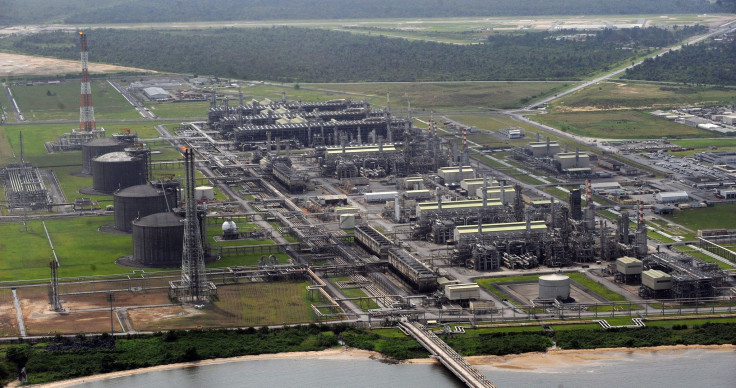Nigeria's Power Supply Drops From Pipeline Vandalism, Rising Temperatures And A Fragile Infrastructure

Many Nigerians are facing darkness amid a dramatic decline in power supply across the West African country in recent weeks, local reports said. Cities nationwide -- including Abuja, the capital, and Lagos, the main commercial hub -- have experienced one of the worst electricity shortages in years, with power available for less than five hours per day in some areas.
The power ministry in Nigeria, Africa's most populous country, blamed the cut on “vandalism of gas pipelines,” local newspaper Premium Times reported Friday.
“As [of] April 3, which is the nearest reference point for us, we are able to generate about 4,500 [megawatts] on the grid, but as [of] this morning we had gone down to about 2,800 MW,” Godknows Igalis, the permanent secretary of the power ministry, told Premium Times in Abuja. “So you can see how much power we have lost as a result of vandalism, that is why power supply has become very bad all over the country because of these strange Nigerians that continue to deliberately blow up our gas pipelines as more power generations are built.
The power supply has waned further in recent weeks as temperatures heated up across sub-Saharan Africa. An unnamed source at the Transmission Company of Nigeria told Vanguard a distorted distribution of gas has also contributed to the declining megawatts. “Most of the country’s thermal and hydropower plants are dependent on gas for optimum performance to meet the demands of Nigerians desiring for robust power supply,” he said Tuesday.
Sam Amadi, chairman of the Nigeria Electricity Regulatory Commission, said the declining power supply was also due to low generation across the country. He said electricity output would improve within the next few years as Nigeria builds more power stations.
“Lights are going down. This is understandable. We don’t have enough capacity for everyone in this country. I think we should be truthful. We will get to a point where we have stable light,” Amadi told the Street Journal in Abuja on Monday. “You know, partly due to gas [vandalism]; partly because we are still building the power plants; they are not all there.”
Nigeria’s power ministry condemned the vandalism and said the damaged pipelines were under repair to boost generation. Igali said the ministry was working with security officials to ensure protection of Nigeria’s fragile power infrastructure.
Since January, the West African nation had lost a minimum of 8.04 billion Nigerian naira ($40.4 million) due to persistent vandalism of the country’s pipeline network, the Nigerian Gas Co., a subsidiary of the Nigerian National Petroleum Corp., told Vanguard in March. Much of the vandalism has taken place in the Niger Delta region, where former rebels had vowed to sabotage pipelines once again if President Goodluck Jonathan lost his re-election bid. Jonathan, of the Peoples Democratic Party, was defeated by Muhammadu Buhari of the All Progressives Congress in late March.
© Copyright IBTimes 2025. All rights reserved.





















